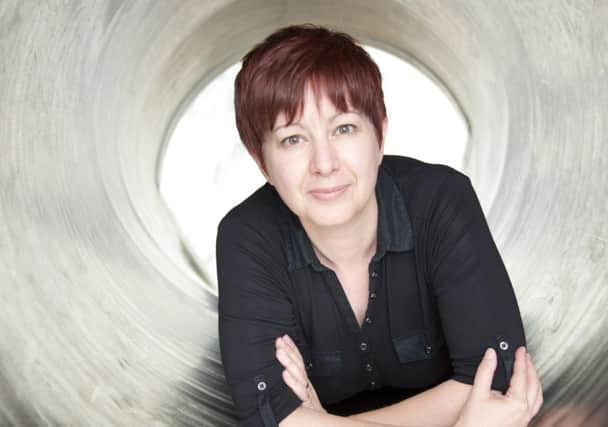Emma’s mission to give young companies an equal chance


She played football in an all-boys’ team, has a feminist father and attended a school with a broad church of kids from the outback to the city.
These early influences of social equality have set the agenda for Dotforge’s co-founder and CEO Emma Cheshire; a woman with a mission to connect the North of England with the rest of the world.
Dotforge is an accelerator for early stage companies.
Advertisement
Hide AdAdvertisement
Hide AdIt offers three months of mentoring and networking and provides £18,000 of funds for teams creating technology to extend social impact or tech start-ups working to improve society.
Born in Canberra, Australia, with two younger brothers, Ms Cheshire said: “My dad is a very strong feminist so as children we were all brought up in a similar way.
“As the oldest girl if I wanted to do something I did it, such as joining the soccer team. And Australia, unlike here, is a very positive competitive environment.
“Myself and my brothers grew up in this witty, friendly world full of banter and our school had kids with different aspirations but who had the same access to education, and some really exceptional teaching.”
Advertisement
Hide AdAdvertisement
Hide AdEnabling people to have equal opportunities is a large part of the ethos of Dotforge. Also informing Ms Cheshire’s journey, which led to her founding Dotforge in 2012, originally backed by 12 local angel investors, is her dyslexia.
“I couldn’t read at the age of eight. They did an IQ test and I was lucky they decided to invest in me and I had one-to-one tutoring for two years so I caught up,” she said.
“So having to strive and being at the bottom of the class taught me how to get ahead, I was determined to start high school in the top stream and at my core I am pretty competitive with myself.”
After thinking she would work in the arts but being good at chemistry she went to the ANU (Australian National University) to study a BA in chemistry, archaeology and art history with the aim of becoming an arts conservator, but learned she couldn’t sit all day painstakingly cleaning artefacts.
Advertisement
Hide AdAdvertisement
Hide AdAn influence in her working with digital happened while at university when she and her art history professor built websites using basic Linux to create simple websites accessible through the university’s intranet to enable the art history students to access the images the lecturers were using; an early form of sharing. She also learned how to build databases.
She left Australia in 1996 to travel and ended up in Edinburgh working for Portfolio Gallery and then York in 1998 for Impressions Gallery and Yorkshire has been her adopted home pretty much since.
Her roles have included national development work for Arts Council England and being head of industry development for Screen Yorkshire which both showed her the value of seizing opportunities and building connections on pan-northern projects around digital.
“During my Arts Council days I worked collaboratively with colleagues in the North East and North West and we could show how strong the north is in digital arts and influence London,” she says.
Advertisement
Hide AdAdvertisement
Hide AdShe fell in love with a Yorkshireman she met in Exeter, now her husband, and the Yorkshire landscape.
“I fell in love with the landscape as soon as I arrived, flying over England. I like the Yorkshire straightness and bluffness in the people; it’s very like Australia. Quick but very dry.
“I worked out that my core skills are how you bring good people together, how you support people to be able to deliver their vision for an audience or customer with a finite amount of resources.”
These are key messages for Dotforge Impact, a specialist programme which partners with the Key Fund community development finance institution. It invests £18,000 into tech start-ups and there is an opportunity for teams to apply for a further £500,000 at the end of the programme.
Advertisement
Hide AdAdvertisement
Hide AdIt also partners the teams with the RSA and a network of business and social entrepreneurs from around the world.
Its previous three accelerators have helped 26 truly innovative teams that do good, such as PiP Payments, which gives access to payment for online shopping for people without bank accounts.
The next round, which is open to applications, starts in September and will be located in Manchester at Central Working; a co-working hub at the heart of the tech community in the city.
”We give the teams office space for 13 weeks and the programme is focused on building a product with their potential customers. It’s all about identified need, not about building technology and hoping you can find a customer.
Advertisement
Hide AdAdvertisement
Hide Ad“It is isolating and hard work starting a business and being entrepreneurial is often seen a bit strange or risky by peers and friends, so part of the value of putting people in the same room is that they can learn from each other and build long-term friendships they can draw on when times get tough – which they do.
“The mentor layer is incredibly important because it helps the start-ups find people who might become advisers, or their first hires or become investors or even customers.
“It helps integrate the entrepreneurs into the business community.”
As Dotforge matured Ms Cheshire learned the accelerator needed to be more focused on the industries the teams are involved with.
Advertisement
Hide AdAdvertisement
Hide AdDotforge Impact supports “tech for good” teams trying to solve social issues.
It is the first of many industry focused programmes which build in the strengths of different locations in the North of England.